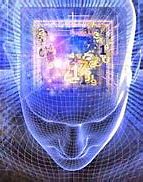In the fast-paced world we live in, education has become a cornerstone for personal and professional growth. It is no longer limited to the confines of classrooms, but has transformed into a dynamic process that adapts to changing times. As we venture into the intricate realms of education, we witness a landscape that is constantly evolving, revolutionizing the way we learn, teach, and perceive knowledge.
 Recent years have witnessed a seismic shift in educational practices, as traditional methods have made way for innovative approaches. One standout teaching method that has gained traction is experiential education. Rather than passively absorbing information, students are encouraged to actively engage with their environment, fostering critical thinking and problem-solving skills. This hands-on approach immerses learners in real-life scenarios, enabling them to make connections between theory and practice. By providing practical experiences, experiential education bridges the gap between academia and the professional world, equipping students with the skills and knowledge needed for success.
Recent years have witnessed a seismic shift in educational practices, as traditional methods have made way for innovative approaches. One standout teaching method that has gained traction is experiential education. Rather than passively absorbing information, students are encouraged to actively engage with their environment, fostering critical thinking and problem-solving skills. This hands-on approach immerses learners in real-life scenarios, enabling them to make connections between theory and practice. By providing practical experiences, experiential education bridges the gap between academia and the professional world, equipping students with the skills and knowledge needed for success.
The advent of technology has also revolutionized the way education is delivered. Remote learning has gained immense popularity, offering flexibility and accessibility to students worldwide. From online courses to virtual classrooms, tech has completely altered the educational landscape. However, it has also presented its own set of challenges. The lack of face-to-face interaction and personalized attention can hinder the learning process. It is crucial for institutions to strike a balance between technological advancements and the human touch, ensuring that students receive a well-rounded education.
As we navigate through the corridors of modern education, it is essential to pause and reflect on its future. Institutions play a pivotal role in shaping young minds, not only in terms of knowledge but also character development. The emphasis should be on preparing students for the complexities of the ever-changing world, equipping them with valuable life skills, such as adaptability, resilience, and problem-solving. The role of educators extends beyond imparting information; it is about fostering curiosity, nurturing creativity, and igniting a passion for lifelong learning.
In this era of constant innovation, the significance of continuous learning cannot be understated. Our world is evolving at an unprecedented pace, and it is imperative to keep up with the latest advancements in various fields. Lifelong learning promotes personal growth, opens doors to new opportunities, and keeps us intellectually engaged. It widens our horizons, allowing us to explore new perspectives, challenge existing beliefs, and push boundaries.
In conclusion, education is a perpetual journey that knows no boundaries. It is about empowering individuals to unlock their true potential and shape a better tomorrow. From experiential education to remote learning, technology has catalyzed the evolution of education. However, its foundations must remain rooted in timeless values and principles. As we embrace the future, let us remember that education extends far beyond the confines of a classroom, and that the pursuit of knowledge is a lifelong endeavor.
References:
- John Dewey, “Experience and Education” Wiley, 2010.
- Sir Ken Robinson, “The Element: How Finding Your Passion Changes Everything” Penguin, 2009.
Note: The content of this blog post is based on personal observations and general research on the topic of education and its various facets.

